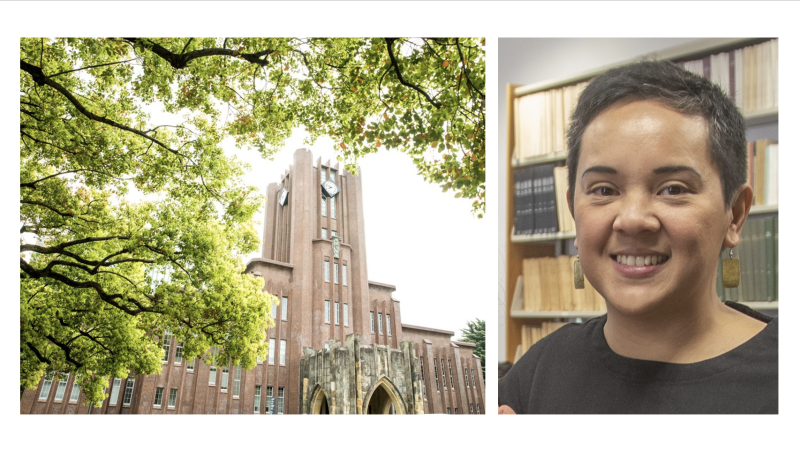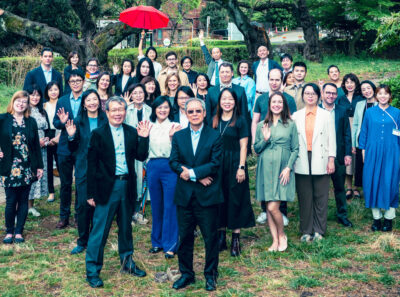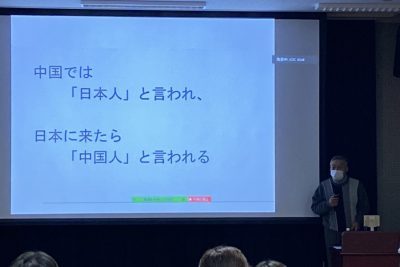New Member Interview: Postdoctoral Fellow Dada DOCOT

In this blog series, we interview new members of Tokyo College. For this entry, we spoke with Dr. Dada DOCOT, a Postdoctoral Fellow who joined us this past August.
Welcome to Tokyo College! Could you tell us a little bit about what you were doing before joining the College?
I am very glad to be here in Tokyo. I am very grateful for the kind and warm welcome of the Tokyo College staff who helped prepare my arrival here. I am a cultural and visual anthropologist whose research is focused on the Philippines and the Filipino diaspora. I am an assistant professor of anthropology at Purdue University currently on research leave to write articles about my current projects as well as my first book. The generous support and hospitality of Tokyo College is giving me the time to concentrate on my writing. I have also worked and conducted research in several places. I was Global Perspectives on Society Teaching Fellow at New York University Shanghai. I finished my PhD in Anthropology at the University of British Columbia and Canada. In fact, I finished my Masters in the Human Security Program at the University of Tokyo Komaba. It is wonderful to be back to Japan and reconnect with peers in my alma mater.
Could you explain your current research project(s)?
I currently have two main projects. The first one is a book project which discusses the effects of global migration in my hometown in the Philippines. The book is an ethnography of how everyday life – ritual, family relations, retirement, etc – has been transformed by migration as Filipinos are among the most mobile people in the world. Ten percent of the Philippine population live overseas and Filipinos can be found in literally all countries and territories globally in different occupations. Much of the literature focus on what happens to Filipinos in their countries of destination where they work and live. It is also equally important to investigate how the hometown is transformed by migration.
The second project is about the effects of the COVID-19 pandemic on Overseas Filipino Workers. My research team interviewed over 50 Filipino migrant workers displaced and affected by COVID-19. The Philippines is seeing its biggest repatriation in its history because so many Filipinos have been displaced by the pandemic and they do not have often cushions to support their homecoming because of the precarity of their jobs abroad. On the news, we have also heard of Filipino crew stranded on the ships in Yokohama. There is also a disproportionate effect of COVID-19 on Filipino communities abroad because many Filipinos work in the healthcare industry as nurses and caregivers and are thus exposed to COVID-19 as frontliners. We have just finished our data gathering from the interview and have articles to write about the situation of Filipino migrants during the pandemic which we hope will be more widely known by the public.
What are your goals for your tenure at the College?
I would like to be able to complete the first draft of my first book while here at Tokyo College and also finish several drafts of articles on Filipino migrants. Because of the dedicated time for writing that I was able to get since my affiliation at Tokyo College in August 2021, I was to write and finish a peer-reviewed article that is coming out at the end of this year. This article is about the emergence of what are called “community pantries movement” in the Philippines during COVID-19 which is a transnational effort to redistribute resources through mutual aid.
In terms of organizing a public talk, I am currently organizing a webinar with a friend, Dr. Tricia Okada at Tamagawa University to invite academics, Filipino migrant works, and journalists to a panel discussing updates about the situation of Filipino migrants in Japan, especially during the pandemic. As you may know, Filipino migration to Japan was very gendered as it links to Japan’s opening of jobs in its entertainment industry. Filipino migration to Japan has changed in the last decades. Filipinos have also come to teach English, and have recently arrived to work in the Japanese healthcare industry. There is a need to update the public on Filipinos in Japan. I am grateful for my affiliation with Tokyo College that is giving me time to work on these projects and advocacies.








